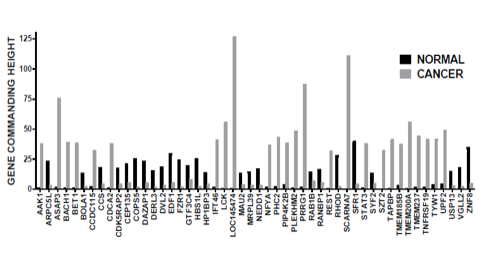Abstract
For decades, the scientific community tried hard to identify the gene biomarkers whose mutations or regulations cause (better say are associated with) specific forms of cancer. For instance, the September 17th 2019 release of the Genomic Data Commons Data Portal [1] includes 3,142,246 mutations detected in 22,872 genes sequenced from 37,075 cases of cancers localized in 67 primary sites. The hope was (and still is) to treat cancer by restoring the normal sequence or/and expression level of the biomarker(s). The biomarkers are selected from the most frequently and broadly altered genes in large cohorts of patients affected by the same form of cancer. Problem is that the frequent alteration indicates that the biomarkers are not in the high priorities of the cell to maintain their normal sequence or/and expression, and, as minor players, their restoration might not be of much consequence.
